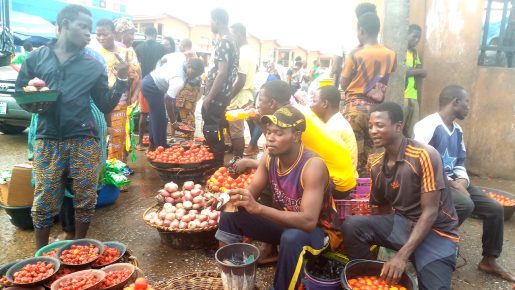Nigeria’s headline inflation rate has hit 21.91%, a level unseen in decades, despite declining buying power, declining aggregate demand, and other indications that show decreased consumption and slow corporate activity, Entrepreneurng report.
The consumer price index (CPI) for February exhibited a month-over-month (m/m) shift of 1.71 percent, a smaller rise than the 1.87 percent registered in January, due to increases in the price of food and fuel.
The m/m change’s slowness shows that the intensity is waning. Price variations from month to month are frequently used by economists to gauge the rate of inflation at the moment. The monthly rate (m/m) separates the trend from distant base effects, as opposed to year-over-year (y/y) change.
According to the National Bureau of Statistics (NBS) most recent report, which was published yesterday, the headline inflation rate was 6.21 percentage points higher on a year-over-year basis than the rate, which was 15.70 percentage points in February 2022.
This demonstrates that when compared to the same month the year before, the headline inflation rate in February 2023 rose y/y.
The contributions of items on a class basis to the increase in the headline index are presented as follows: Bread and cereal (21.67%), actual and imputed rent (7.74%), potatoes, yams, and other tubers (6.06%), vegetables (5.44%), and meat (4.78%). The NBS stressed that the increase in the cost of food was to blame for the rise in the rate.
Core inflation, which includes less volatile farm products and other goods, also declined last month, falling from 19.16 to 18.84 percent year over year, supporting a decline in aggregate demand.
According to the data, food inflation increased at the slowest rates during the month in Sokoto (18.54%), Jigawa (19.67%), and Yobe (21.89%), with the greatest rates in Kwara (29.51%), Imo (27.47%), and Lagos (27.42%).
However, on a month-to-month basis, Yobe (3.15%), Edo (3.03%), and Ogun (2.9%) saw the sharpest movements. The research didn’t explain why the pattern was happening.
In the next three months, as the area advances deeper into the dry season, food insecurity in Borno and Yobe states may worsen to a crisis level, according to the World Bank’s most recent Food Security Update, which was published on Monday.
The two states, according to the World Bank, might join other northern regions described as being in “food crisis conditions,” including western and southern Katsina, northern and southern Sokoto, and northern and central Zamfara.
The CPI number followed a period of increasing cash shortage, which economists claimed had slowed down consumption, threatened cash-dependent sectors of the economy such as internal trade, and had also restricted economic activity.
Godwin Emefiele, the governor of the Central Bank of Nigeria, asked fellow central bank governors and other financial sector authorities in Africa yesterday to be more diligent in their regulatory and supervisory tasks to prevent any bank runs.
At the beginning of the 2023 African Central Banks Conference, which was held at the Global Leadership Centre in Johannesburg, South Africa, Emefiele gave the opening address.
He advised Central Banks on the continent to learn from the recent failure of Silicon Valley Bank (SVB) and Signature Bank in the United States by putting regulations in place that will stop any run on banks in their countries. He cited the current global dynamics and specific policy developments in Nigeria to address emerging shocks.
While banks have continued to ration payments with third-party bank ATMs paying as little as N1,000 for each withdrawal, the old N500 and N1,000 notes are once again available at Automatic Teller Machines (ATMs) in key cities.
In conclusion, some economists have cautioned that restricting public access to cash as a tool for combating inflation could be ineffective and seriously harm the economy. Economists have expressed a variety of opinions on the relationship between the recent inflation prints and the scarcity of the naira.
Source: Punch











